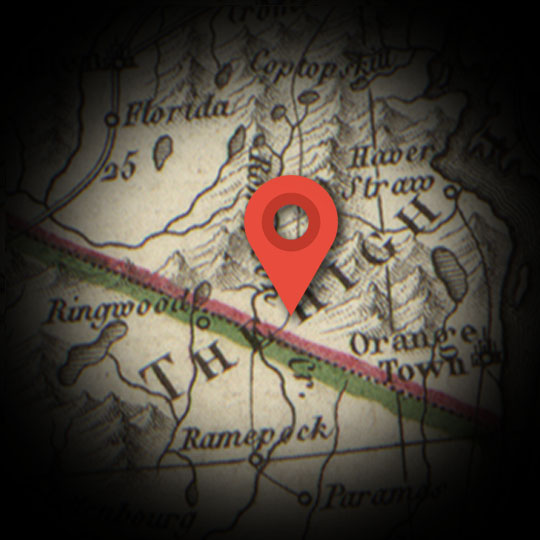JOHN ANDRE’S WOOD
Explore
[Tappan, NY]
When General Benedict Arnold was unmasked as a treasonous cooperator with the British and managed to slip through Alexander Hamilton’s and George Washington’s hands at West Point, another player in Arnold’s scheme was not so lucky: British Major John Andre.
Andre, though in disguise, was captured by wary American soldiers on patrol. They found damning documents in his boots, and Andre was arrested as a spy.
Hamilton was stirred by Andre upon meeting him, and could not help but be impressed by this dashing and—to Hamilton’s mind—“honorable” enemy militant.
Working as a spy, however, was widely considered by military brass to be inexcusable for gentlemen like John Andre. Spies were a necessary but distasteful element of making war. George Washington had Andre swiftly tried and sentenced to death. And because he looked down on spies, Washington would not allow Andre to die an “honorable” death by firing squad, but instead to be hanged like a common criminal.
Hamilton was in no position to protest, but he privately took exception to and was aggrieved by his commander’s strictness in this case.
Hamilton’s jealousy of John Andre’s deportment is undeniable in a letter he wrote to his then-fiancee, Elizabeth Schuyler:
“I wished myself possessed of André’s accomplishments for your sake; for I would wish to charm you in every sense. I know I have talents and a good heart; but why am I not handsome? Why have I not every acquirement that can embellish human nature?”
Andre was hanged to death within the borders of what is now Tappan, New York, just a stone’s throw from the New Jersey border.
In an interesting side note to the Andre affair, the very woods where he met his maker became important in local folklore, being remembered as a dark and haunted spot where travelers by night can expect bad luck and disturbing phenomena. This is even captured in Washington Irving’s short story, “The Legend of Sleepy Hollow.”

TIME FRAME:
October 2, 1780
